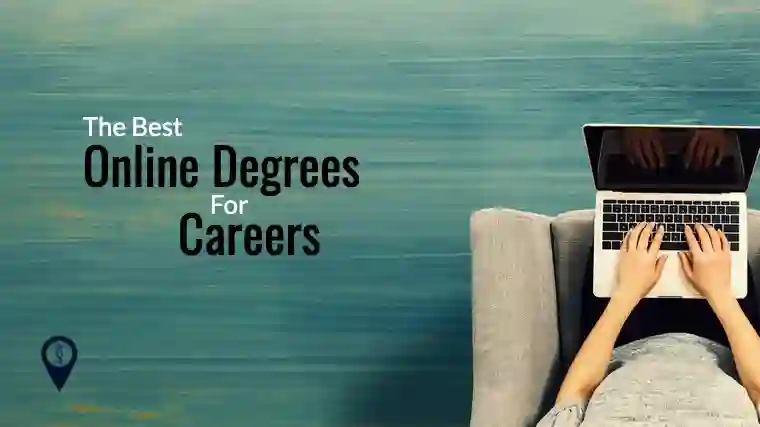
Online Degrees in Film and Media: Storytelling in the Digital Age
Film and media have always played a pivotal role in shaping our culture and the way we perceive the world around us. In today’s digital age, the significance of storytelling through film and media has only grown, with the rise of online streaming platforms, social media, and digital content creation. Online degrees in film and media have emerged as a powerful means to prepare aspiring filmmakers, journalists, and content creators to navigate this dynamic landscape. In this article, we will explore the significance of online degrees in film and media and how they empower individuals to tell compelling stories in the digital age.
The Transformation of Storytelling
The art of storytelling has evolved significantly over the years, from ancient oral traditions to the written word, and eventually to the visual and auditory mediums of film and media. Today, digital technology has transformed storytelling once again, enabling storytellers to reach broader and more diverse audiences through various platforms and formats.
The digital age has democratized the creation and distribution of content, allowing individuals and small production teams to compete with major studios and media conglomerates. Online streaming services, social media platforms, and user-generated content have reshaped the way we consume stories and information. As a result, there is an increasing demand for skilled professionals who can harness the power of digital media to tell engaging and impactful stories.
Online Degrees in Film and Media: A Modern Approach
Accessibility
Online degrees in film and media have revolutionized access to education in these fields. Traditional film schools and journalism programs may be limited in geographic availability and may not be feasible for individuals with work or family obligations. Online programs eliminate these barriers, allowing students from diverse backgrounds and locations to pursue their passion for storytelling without the need to uproot their lives.
Flexibility
Flexibility is a hallmark of online education. Film and media students often need to juggle coursework with internships, freelance work, or personal projects. Online programs offer the freedom to choose when and where to study, making it easier to balance education with other commitments. This flexibility allows students to tailor their learning experience to their unique circumstances.
Diverse Learning Resources
Online film and media programs provide a wide range of learning resources, including video lectures, digital editing software, access to film libraries, and virtual production studios. These resources engage students in hands-on learning experiences and expose them to the latest technologies and trends in the industry. Online programs often feature faculty members with diverse expertise, offering students a well-rounded education.
Updated Curriculum
The film and media landscape is in a constant state of evolution, with new technologies, platforms, and storytelling techniques emerging regularly. Online programs are adept at keeping their curriculum current with industry standards. Students receive training in the most up-to-date digital editing software, social media strategies, and storytelling formats, ensuring they are well-prepared for careers in the digital age.
Cost-Effective Education
Online degrees in film and media can be more cost-effective than traditional on-campus programs. Students can save on commuting, housing, and other expenses associated with attending a physical campus. Additionally, some online programs offer financial aid and scholarships, making quality education in film and media more accessible and affordable to a broader range of students.
Storytelling in the Digital Age: Areas of Study
Film Production
Online film programs cover all aspects of filmmaking, from screenwriting and cinematography to directing and editing. Students learn to create narrative and documentary films, mastering the art of visual storytelling. With access to digital cameras, editing software, and virtual production tools, they gain practical experience in film production.
Digital Journalism
Digital journalism programs prepare students to be modern storytellers in the world of news and information. Students learn to write, report, and edit stories for digital platforms, including websites, podcasts, and social media. They also explore the ethical and legal considerations of journalism in the digital age.
Social Media and Content Creation
The rise of social media and content creation platforms has opened new avenues for storytelling and audience engagement. Online degrees in media often include coursework in social media strategy, influencer marketing, and content creation. Students learn to produce engaging content for platforms such as YouTube, Instagram, TikTok, and podcasting.
Film and Media Analysis
Understanding the impact and cultural significance of film and media is essential for modern storytellers. Online programs teach students to critically analyze films, television shows, and digital content, examining themes, aesthetics, and societal implications. This knowledge enhances their ability to create informed and thought-provoking narratives.
Digital Marketing and Advertising
Digital marketing and advertising are integral to the distribution and promotion of media content. Online programs offer coursework in digital marketing strategies, audience targeting, and advertising campaigns. Students learn to leverage digital platforms to reach and engage audiences effectively.
Conclusion
Online degrees in film and media are at the forefront of the storytelling revolution in the digital age. They empower individuals to become skilled storytellers, filmmakers, journalists, and content creators who can navigate the ever-evolving landscape of digital media. As the world continues to consume stories and information through online platforms, the demand for professionals who can craft compelling narratives and engage diverse audiences will only increase.
The power of storytelling to inform, entertain, and inspire remains undiminished. Online education in film and media equips individuals with the knowledge and skills needed to make a meaningful impact in their chosen fields. By embracing technology and the opportunities it provides for creative expression, online degrees in film and media are helping to shape a future where storytelling continues to be a driving force in our culture and society.